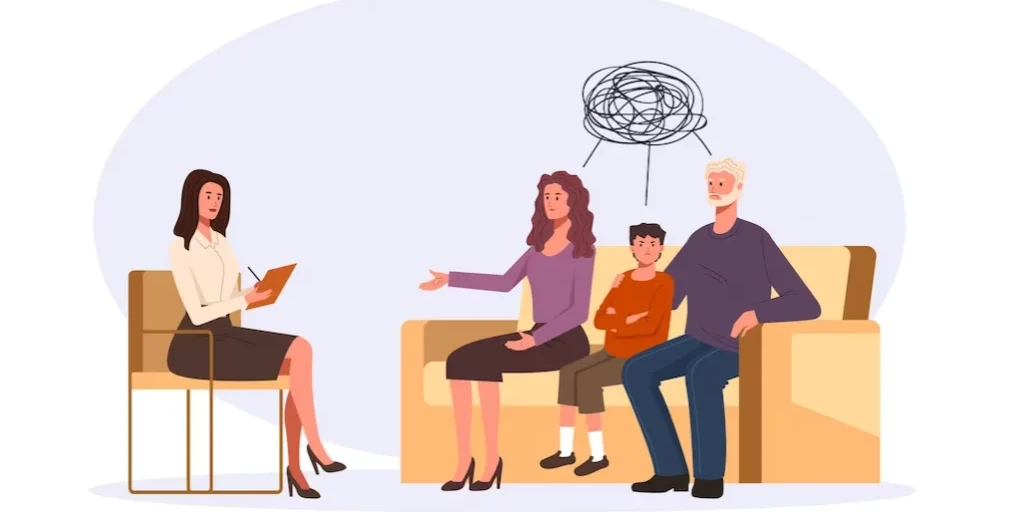24/7 Helpline:
(866) 899-221924/7 Helpline:
(866) 899-2219
Learn more about Bipolar Disorder Treatment centers in Estes Park
Bipolar Disorder Treatment in Other Cities

Other Insurance Options

Highmark

EmblemHealth

Regence

American Behavioral

Optima

Providence

CareSource

BHS | Behavioral Health Systems

Meritain

State Farm

Absolute Total Care

Kaiser Permanente

UnitedHealth Group

BlueCross

Optum

CareFirst

GEHA

Holman Group

Choice Care Network

Evernorth

Harmony Foundation
Harmony is a residential drug/alcohol treatment center nestled in the Rocky Mountains near Estes Par...

SummitStone Health Partners
SummitStone Health Partners is a behavioral healthcare and alcohol and drug rehab center in Estes Pa...

Counseling Place
Counseling Place is a private rehab located in Estes Park, Colorado. Counseling Place specializes in...

AA – Alcoholics Anonymous – Fall River Group
AA – Alcoholics Anonymous – Fall River Group is a non-profit rehab located in Estes Park, Colorado. ...

Recovery Abuse Program
Recovery Abuse Program is a private rehab located in Estes Park, Colorado. Recovery Abuse Program sp...

Fire Mountain Programs
Fire Mountain is a residential treatment center in the Colorado Rockies where troubled teens 12-17 a...


Northpoint Colorado
Located in Loveland, Colorado, Northpoint Colorado Offers alcohol and drug rehab services to men and...

Mountain Crest Behavioral Health
Mountain Crest, Behavioral Health Center, is a rehab service offered by Poudre Valley Hospital in Fo...

Narconon Colorado
Narconon Colorado is an addiction recovery center located in Fort Collins, Colorado. They provide dr...

Summit Stone Health Partners
Summit Stone Health Partners is a behavioral health care facility that provides mental health treatm...

Creative Counseling Services
Creative Counseling Services provides outpatient substance abuse counseling services. Creative Couns...

Tri-Life Health
Tri-Life Health is an outpatient rehab located in Fort Collins, CO. Tri-Life Health specializes in t...

A New Perspective Counseling Centers
A New Perspective Counseling Centers is a private rehab located in Fort Collins, Colorado. A New Per...

Creative Counseling Services
Creative Counseling Services provides outpatient substance abuse counseling services. Creative Couns...

A New Perspective Counseling Centers
A New Perspective Counseling Centers is a private rehab located in Loveland, Colorado. A New Perspec...

1st Alliance Treatment Services
1st Alliance Treatment Services is located in Loveland, Colorado. 1st Alliance Treatment Services pr...

AspenRidge Fort Collins
AspenRidge Recovery is a 90-day extended care treatment program daytime, evening and online treatmen...

Adams Recovery Center – Women’s Program
Adams Recovery Center – Women’s Program is a private rehab located in Loveland, Ohio. Adams Recovery...



























































Rocky Mountain Serenity Club
Rocky Mountain Serenity Club is a private rehab located in Fort Collins, CO. Rocky Mountain Serenity...

North Colorado Behavioral Health
North Colorado Behavioral Health is a private rehab located in Fort Collins, Colorado. North Colorad...

Island Grove Regional Treatment Center
Island Grove Regional Treatment Center is a private rehab located in Fort Collins, Colorado. Island ...

Alcohol Counseling and Guidance Services
Alcohol Counseling and Guidance Services offers outpatient treatment for individuals with alcohol an...

Rocky Mountain Interventions
Rocky Mountain Interventions is a private rehab located in Loveland, Colorado. Rocky Mountain Interv...

AA – Alcoholics Anonymous
AA – Alcoholics Anonymous is a non-profit rehab located in Fort Collins, Colorado. AA – Alcoholics A...

Touchstone Health Partners
Touchstone Health Partners is a private rehab located in Fort Collins, Colorado. Touchstone Health P...

Serenity House
Serenity House is a sober living home located in Loveland, CO. Serenity House specializes in the tre...

The Jacob Center
Founded in 1988, The Jacob Center is a non-profit trauma informed agency that provides community bas...

SummitStone Health Partners
SummitStone Health Partners is a private rehab located in Fort Collins, Colorado. SummitStone Health...

Touchstone Health Partners – Children and Family Services
Touchstone Health Partners – Children and Family Services is a private rehab located in Fort Collins...

Connections
Connections is a private rehab located in Fort Collins, CO. Connections specializes in the treatment...

ARC Counseling Center
ARC Counseling Center is a private rehab located in Fort Collins, Colorado. ARC Counseling Center sp...

New Directions Counseling Center
New Directions Counseling Center is a private rehab located in Berthoud, Colorado. New Directions Co...

1st Alliance Treatment Services
1st Alliance Treatment Services is located in Fort Collins, Colorado. 1st Alliance Treatment Service...

CONCERN – Laporte
CONCERN Professional Services - 217 King St. is a private rehab located in Laporte, PA. CONCERN Prof...





































































































































